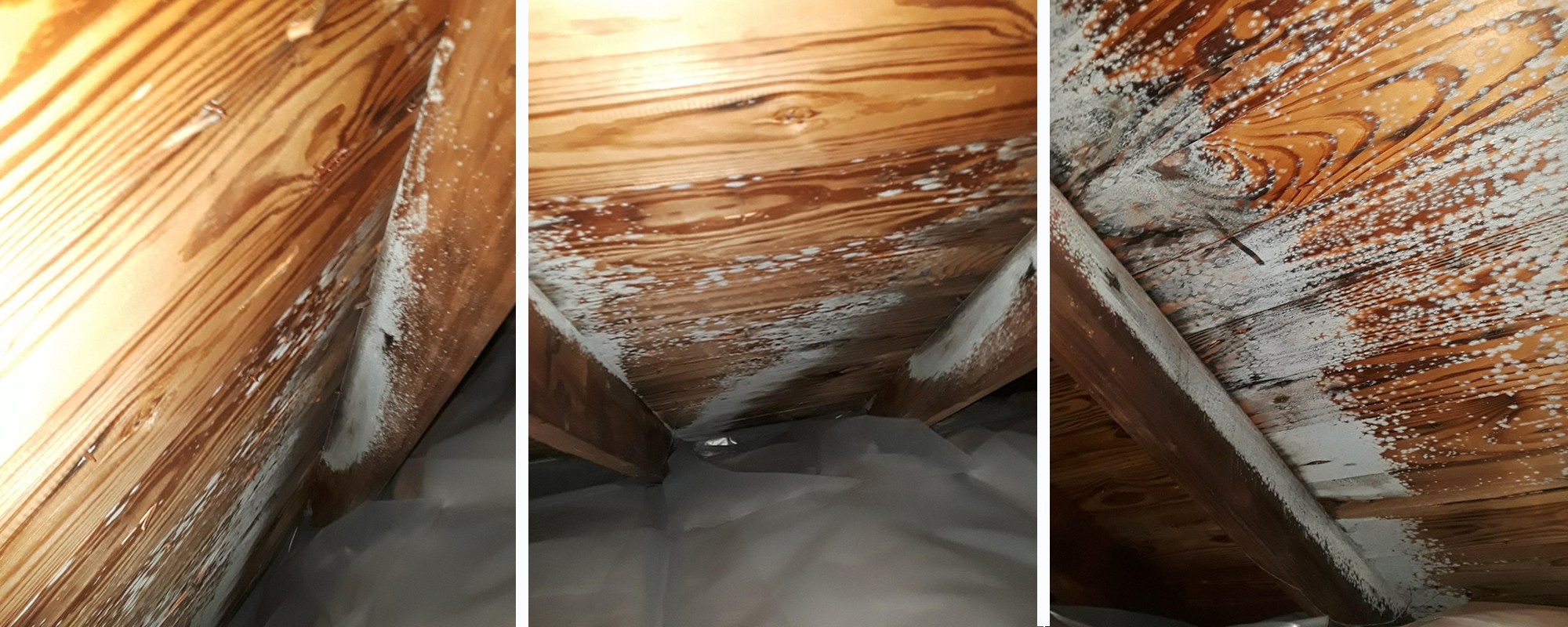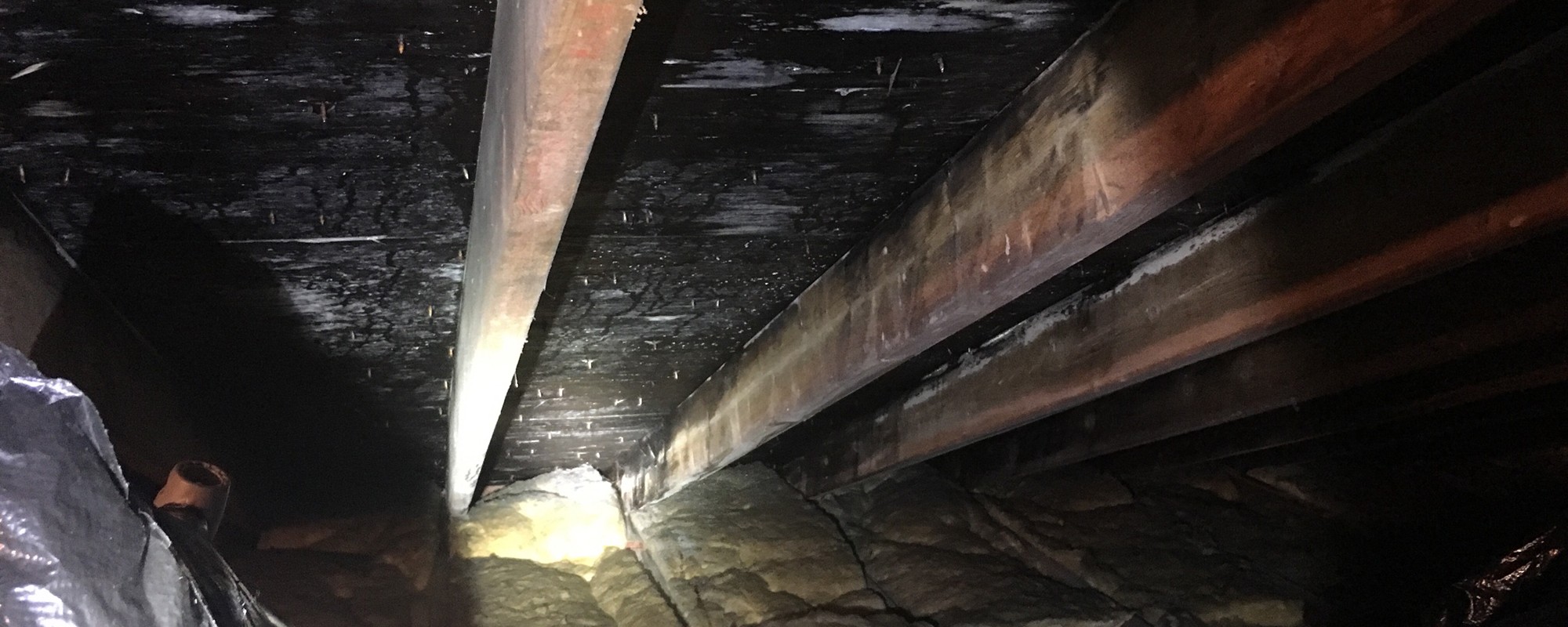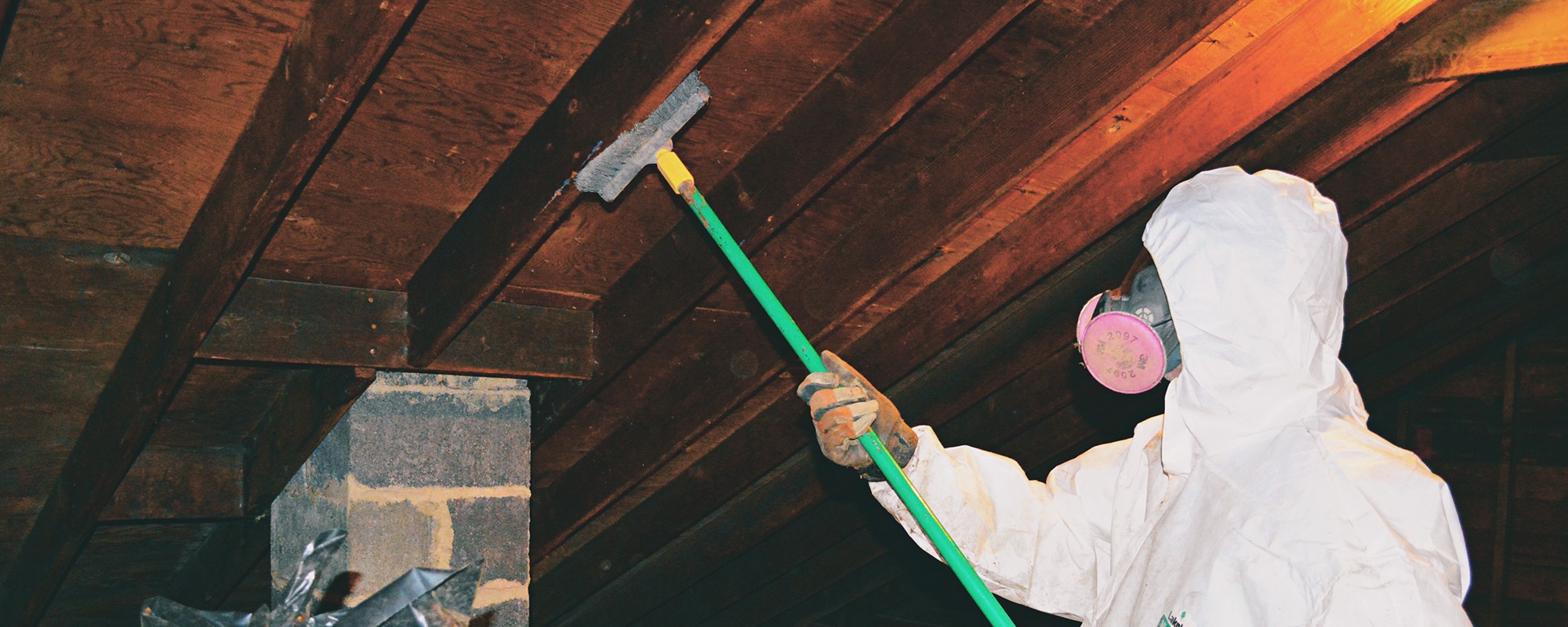Understanding What Attic Frost Means For Your NJ Home
Attic frost is not an uncommon phenomenon in New Jersey properties when temperatures dip below freezing. Attic frost is evidence of a moisture problem that you may not have noticed otherwise. In New Jersey, attics often suffer from humidity issues– whether it is due to lack of ventilation, improper insulation, air leaks from the main living space or other maintenance issue. Elevated attic humidity is typically the culprit behind attic frost. When the warm, moist air in your attic cools with dropping temperatures, the cooler air can no longer hold as much moisture. Water vapors from the air will condense (or shift from a gaseous state to a liquid state) onto your building materials. Once temperatures drop close to or below freezing, the condensation on your sheathing, nails and other building materials will freeze and leave you with a frozen attic.
If you discover frost in your attic, it means you have a bigger problem in your attic– moisture. Something is going that is allowing excess accumulation of humid air that is condensing and freezing on the underside of your roof sheathing. Moisture buildup from excess humidity can damage your attic building materials and create the ideal breeding ground for mold growth. Additionally, your attic will eventually thaw with rising temperatures. When that happens, water collects and can leak into your house. If the water stays in the attic, it will saturate you porous building materials and lead to expensive water damage and attic mold growth in New Jersey homes. Water damage and mold growth can compromise the structural integrity of your building materials, diminish your property value and become a potential health threat.
Attic Moisture Problems in New Jersey Homes
Warm air from the main living space beneath your attic naturally rises and travels upwards. When warm air from inside the house travels up through attic bypasses, this can lead to excess accumulation of humid air in your attic if you are not careful. Elevated attic humidity is one of the most common causes of attic mold growth in NJ homes. Moisture buildup in the attic can be the result of a variety of problems. The following are some of the more common causes of humidity and moisture issues in New Jersey attics.
- Poor ventilation OR Improper Ventilation
- Insufficient Insulation OR Over Insulation
- Fans and vents that empty into the attic rather than outside
- Air Leakage From Main Living Space
Solving moisture problems can be complicated and will likely require professional assistance. Moisture problems are typically caused by an assortment of issues and often require a combination of efforts to eliminate. It’s a matter of achieving a balance between adequate ventilation and adequate moisture input, to maintain a healthy indoor living environment. New Jersey homeowners can counter moisture and humidity issues in attics with the right combination of proper insulation, sufficient attic ventilation and strategic bypass sealing.
Regardless of the cause, moisture and humidity issues need to be addressed. Unaddressed moisture and humidity issues can be problematic and lead to issues like attic mold growth and water damage.
Attic Moisture Control & Attic Mold Prevention
The key to preventing attic frost, attic water damage and attic mold growth is moisture control. New Jersey homeowners can play a crucial role in maintaining attic moisture control. Routine maintenance checks and a strategic combination of attic mold prevention tactics can go a long way in keeping moisture related problems, like mold, at bay. See below for some common moisture control methods that can go a long way in protecting your property and maintaining a healthy environment for you and your family.
- Regularly check for Leaks
- Maintain your roof system
- Establish sufficient ventilation
- Check for adequate & proper attic insulation
- Maintain your gutters to prevent backups, overflows and damage
- Place a dehumidifier maintain humidity levels below 50%
- De-clutter your attic space to ensure efficient and adequate air circulation
Learn more about by checking out our article on attic moisture control and frost prevention in South Jersey homes and properties.
Attic Frost & Indoor Mold Growth in NJ Properties
Attic moisture can feed mold growth. If an attic moisture problem is not properly addressed in a timely manner, it can lead to extensive property damage that will require an expensive repair. Attic frost is a sign that you have a moisture problem in your attic. It is important to get to the bottom of it and address it as soon as possible to prevent additional issues. Furthermore, when attic frost begins to thaw, the water build up and leave you with water damage and mold growth. If you discover attic mold growth in addition to frost, you need to consult an attic mold remediation professional in your New Jersey area.





